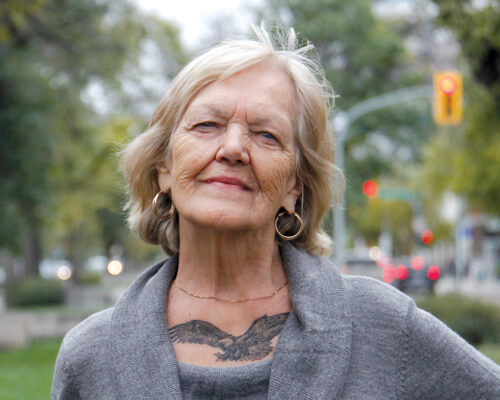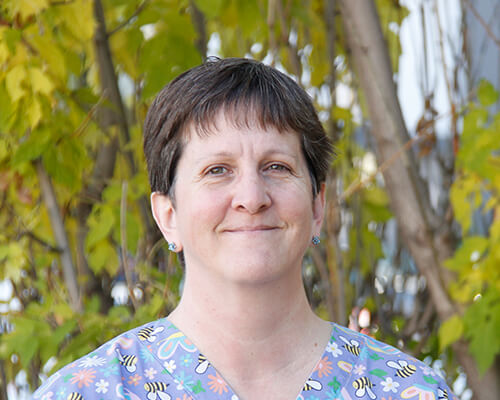Tanis
I have vascular dementia, but you can’t tell that by looking at me. When I’m out in the community, I’m not afraid to tell people so I can get the help I need.
It’s been a few years since I got the diagnosis, but I am managing very well. It’s true that I can see changes in myself, but I still live in my own apartment and I volunteer at the pet rescue shelter. I also attend my support group at the Alzheimer Society. It’s been a lifesaver for me; the great leadership and deep friendships I’ve formed have helped to keep my spirit strong.
I’m lucky that I’m still quite independent, and I think I’m living well. I have friends who understand. If I miss a word in the conversation, I say, “You get the drift!” My friends don’t ask me to search for the word.
People need to know that they can talk to someone with dementia. We want to be treated well…we don’t want to be treated as though we are unstable or crazy. But sometimes it’s hard to tell us from anybody else because we don’t necessarily have wheelchairs or white canes. So if I’m struggling with something, such as finding a product in the store, I tell the clerk that I have dementia. I’ve found that people are happy to help.
I think that by being honest, we can create awareness in others who may not understand dementia. Once they see us as people who just need a little help sometimes, they’ll see us as who we are: people who are living their lives in their own way with dementia.
Comments
We may use your information in order to track your relationship with us and our site(s). We do NOT share your information with third parties.

Here are my tips to help you understand:
- Develop a support system that you can rely on. You will be able to share your feelings and count on others who can help you.
- Ask for information or a second opinion. It's part of your job.
- Cherish every moment you share and every memory you have with your family members.
- Be patient and compassionate. Your family members need you to deal with the many changes brought about by the disease.
- Life can be crazy. Take your time and take care of yourself as you face your challenges.
-
More Stories
-

Gary
2018
Manitoba
-

Laurie
2018
Manitoba
-

Nancy
2020
Manitoba
-

Tannis
2018
Manitoba

Google 1557 days ago
<strong>Google</strong> The time to read or stop by the content or web sites we have linked to below.
Google 1564 days ago
<strong>Google</strong> That will be the end of this article. Here you will find some web sites that we believe you will value, just click the hyperlinks.